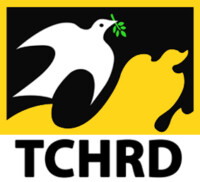Chinese authorities are forcibly implementing a river diversion project that will have disastrous consequences on the availability water sources for local Tibetan farmers and their herds of cattle in Chumar (Ch: Quma) Township in Bayan Khar (Ch: Hualong) Hui Autonomous County, Tsoshar (Ch: Haidong) Prefecture, Qinghai Province, in the Tibetan province of Amdo.
Tibetans living in five villages of the Chakchu area will be affected by the project that began this month to divert Chakchu (also known as ‘Drampa’) river. The predominantly farming communities in Traseng, Dro, Gonpo Gyu, Achok and Adhey villages are concerned that they will face water scarcity in irrigating their farmland and their livestock will no longer have adequate supply of water and grass. The villagers fear that water scarcity will also bring negative impacts on the overall health of the local environment. Farmers whose farmland with standing crop is being dug up to make canals have not been paid any compensation.

Sources with contacts in the area told TCHRD that the authorities did not consult local Tibetans or obtained their informed consent before implementing the project. It has been more than a week into the project and the villagers have still no information on where and why the river is being diverted. Official opacity has given rise to speculations among local Tibetans that water is being diverted to benefit the farmlands of the dominant Hui (Chinese Muslim) community that have long held key government and Party positions in the area or to other development projects such as mines or dams.
On 10 July, local authorities deployed a large number of security forces including police and intelligence officers at the site of the project to intimidate and suppress efforts by affected villagers to stop the project. Video footage of bulldozers digging up resisting villagers’ farmland have become available on social media. A heavy posse of uniformed security forces can be seen guarding the bulldozers under a huge red banner emblazoned with a slogan in Chinese: ‘Manage water resources in accordance with law, assist the administration in accordance with law’. The slogan is a veiled warning to farmers that any opposition to the project will be punished ‘in accordance with law’. In another footage, a Tibetan is heard shouting “Kyi Hi Hi, Hualong County!” a Tibetan battle cry in defiance.
Pema Gyal, researcher of TCHRD, believes that the river diversion project is related to the Qinghai Water Resources Management Plan (2008-2030) that allows local authorities to allocate water resources without public consultation or taking into consideration the environmental costs. “This sort of water management policy is not sustainable”, said Mr Gyal. The plan claims to promote ‘water equity’ by managing water supply and demand including through interbasin water transfers and accelerated extraction of groundwater. But critics have long cautioned that such projects interfere with the laws of nature and will bring catastrophic consequences on the local ecology and demography. Changing the course of a river requires digging canals and building reservoirs that will cause irreversible damage on marine life.
In 2010, the UN General Assembly recognized water and sanitation as a human right and a prerequisite to the realization of all human rights. China’s implementation of unsustainable water management policy does not merely violate Tibetans’ right to water. It violates a host of other rights such as right to adequate food necessary for food production; right to health to ensure environmental hygiene; and right to gain a living by work that is essential for securing livelihoods. TCHRD calls on the Chinese authorities to respect the human right of Tibetans to water, cease implementing water diversion projects, and develop more sustainable alternative policies. Priority should be given to people’s livelihood and environmental sustainability when designing and implementing water management projects.
